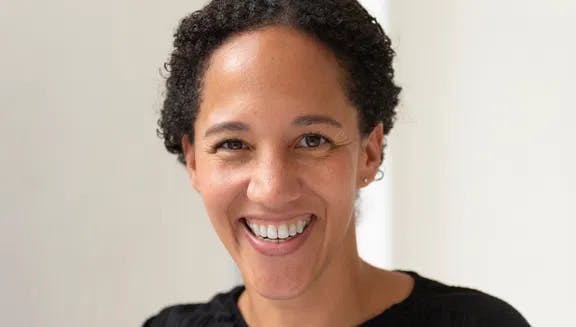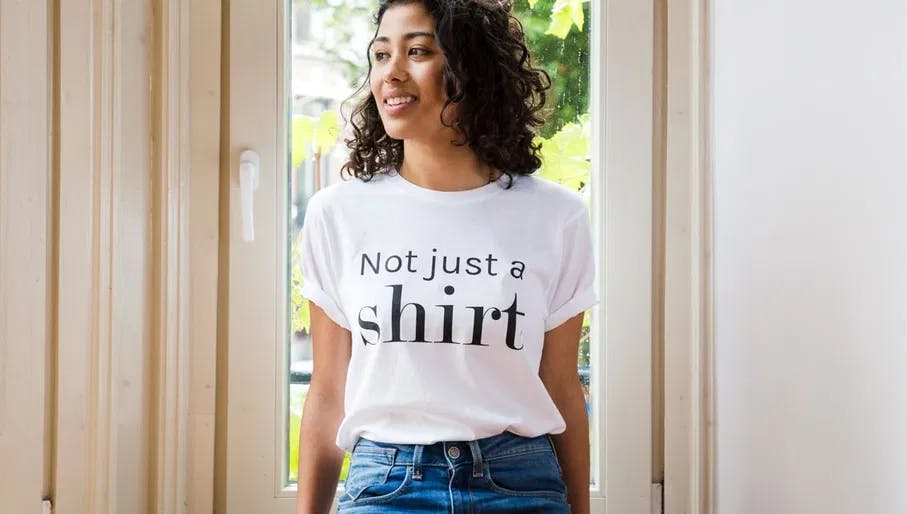
#FoundersFridays: Meet Puck Middelkoop
3 January 2024

#FoundersFridays is a StartupAmsterdam interview series: for entrepreneurs, by entrepreneurs. Each hero answers questions on their entrepreneurial journey, their learnings, milestones and bottlenecks, as well as on Amsterdam and the Dutch startup scene. It’s a platform for entrepreneurs to speak their minds freely and pass on their learnings to anyone who’s thinking about founding a startup as well.
This week we spoke to Melissa Wijngaarden, the co-founder of Project CeCe, an online platform that collects products from sustainable clothing brands, both big and small, helping shoppers make environmentally friendly choices.
I founded Project Cece with two other women while we were still studying at the University of Amsterdam. We started the company because we wanted to find sustainable fashion, without having to put in more effort than “normal shopping”. There are lots of beautiful sustainable webshops online, but it took a lot of searching to find these sites when we were shopping for new clothes. So we decided to build a website that would unite all those webshops in one place. We started with a year-long proof-of-concept phase and quite quickly realised that we weren’t the only ones looking for such a website.
All of Project Cece’s founders were born and raised in Amsterdam (Zuidoost) so we already had a strong connection with the city. We found that the local ecosystem was very beneficial for growing our startup. First of all, through our connection with the University of Amsterdam, we got in touch with Amsterdam’s Student Investment Fund (ASIF), which provided us with our first round of funding and also helped us navigate through Amsterdam’s startup ecosystem. Secondly, there are a lot of partners in our field based in Amsterdam. For example, we’ve collaborated with institutes like Amsterdam Fashion Institute to organise a Fashion Front during a Climate March. Lastly, as Amsterdam attracts lots of talent, both from inside and outside the Netherlands, we’ve been able to find amazing people to join our team.
Both Marcella and I come from minority backgrounds and all three founders are women studying in (white) male dominated fields, so we all acknowledge the importance of a diverse team, where every single person feels welcomed, encouraged and taken seriously. However, we do notice that the sustainable fashion industry is not diverse at all, which is something we’re actively seeking to improve. As we’ve established partnerships with over 250 sustainable webshops and reach thousands of people through our website every single day, we feel a responsibility to make this industry more inclusive. We are doing this by representing and amplifying voices through social media, but there is still so much more that can and should be done. We are noticing gaps in the industry, and are currently in the process of taking a more active role in making it more inclusive. We encourage anyone who has an idea aiming to improve diversity in the sustainable fashion industry in the Netherlands to reach out to us.
We’ve noticed that the Pixyle tool shows people that sustainable fashion is actually really easy to find and you don't have to choose between style and sustainability anymore. Nowadays, you can easily have both without having to put in much effort. Our main goal is to show people how easy it is to buy sustainable clothes. They are just one click away from a website that unites the power of 250+ sustainable webshops and filters different aspects of sustainability, providing short summaries that explain why each curated brand is a sustainable choice. Project Cece provides fair fashion without the extra research and supports webshops that are built on a foundation of sustainability. It’s mostly a matter of mindset change, and we believe the collaboration with Pixyle provides a fun way to try out and see how many beautiful and affordable options there are.
Fundraising is a challenge for most people and I especially found it to be a very frustrating process. On multiple occasions, potential investors took a condescending approach, explaining very basic things to us, even after we had indicated our expertise in this field. For example, they would explain the benefits of using Google AdWords in our marketing strategy, which we’ve already been doing quite successfully—some of our campaigns have a click-through-rate of 25%, far surpassing the average of around 2%. When we would share this data, the wouldn’t respond by saying “Oh, nice! Seems like you know what you’re doing”. Instead, they would continue their lecture. Not that I don’t appreciate it when people try to teach me new things, but it’s a waste of time and quite disrespectful to explain topics that we’ve been working with on a daily basis for years. Dealing with their assumption that we didn’t understand was one of the worst parts of talking to investors. Another thing I noticed when talking to other female founders, was a huge gap in venture building money. It is ALWAYS “too early”. If I look around me, I see multiple female-founded startups not growing to their full potential because they just lack the access to funding, despite all the attention for “more funding for female founders”.
Want to learn more about the women breaking through the startup scene? Check out this roundup of Amsterdam’s wonder women.